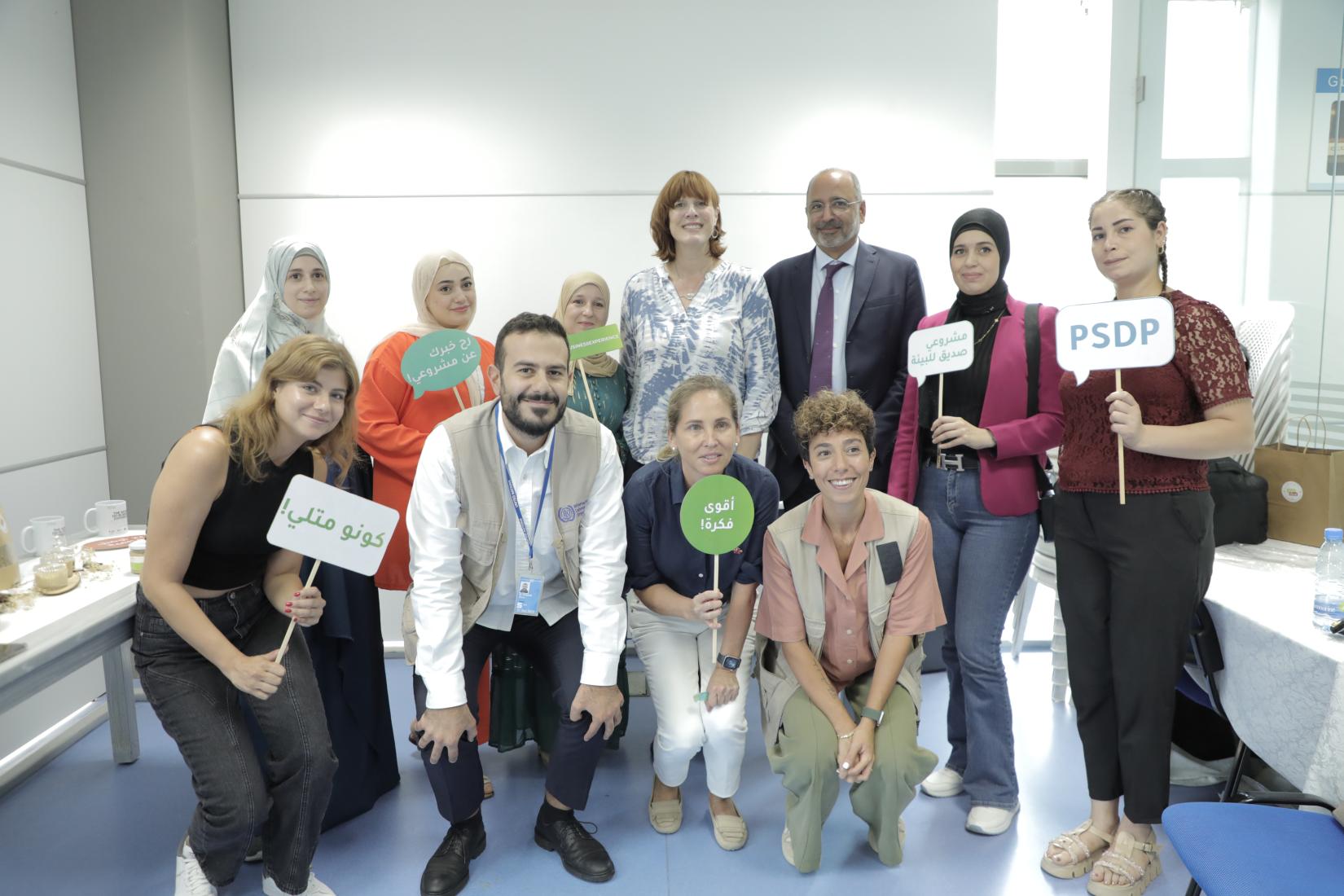IMPROVE AN ENABLING POLICY ENVIRONMENT FOR WOMEN
The PSDP has been working towards creating a safe, enabling, and equitable environment conducive to women’s economic participation and growth in the agriculture and agri-food sectors.
The initiative is led by UN Women in collaboration with PSDP stakeholders, including UN Organizations, civil society organizations, line ministries, Members of Parliament, and the private sector:
- Support gender-responsive policy and legislative reforms to address key barriers to women's economic participation, including unpaid care work.
- Facilitate policy dialogue among national stakeholders, government bodies, and the private sector to advocate for gender-responsive policy and legislative reforms.
MACROECONOMIC POLICY AND LEGISLATIVE REVIEWS
ABOUT
Policy and legislative reviews were conducted to examine the existing gender gaps and gender responsiveness of relevant policies and procedures at the level of the private sector, extension services, and current legislative frameworks. The examination included interviews with agricultural/agribusinesses on their internal policies, Ministry of Agriculture (MoA) extension centers on the services they provide to women farmers, an analysis and readings of legislative texts and articles, and interviews with gender focal points at the Ministries of Agriculture, Industry, and Labour.
TARGET AUDIENCE
Women and men farmers & women-led MSMEs in the agriculture and agri-food sectors, as well as members of Parliament, Unions of workers, Ministries of Agriculture, Economy and Trade, Labour and Industry, workers across the various segments of the fruits and vegetables value chain.
OBJECTIVES
The reviews and consultations aim to recognize and address the primary challenges that hinder women's involvement in the economy. Efforts to promote gender-responsive policy and legislative reforms foster dialogue and advocacy among stakeholders. The reviews and consultations assess the degree to which gender diversity is taken into account, and women's equitable and safe participation in the agricultural sector and agro-food industries are promoted by Lebanese laws and policies.
This Macro-level component is implemented by UNWOMEN.
GENDER ANALYSIS
ABOUT
A Gender Analysis of the agriculture and agri-food sectors examined the socio-economic aspects and gender gaps of women’s participation in the target sectors and value chains. The analysis includes a baseline and end-line analysis of all PSDP stakeholders’ project activities, and direct sampling of project participants.
TARGET AUDIENCE
Women and men farmers & women-led MSMEs in the agriculture and agri-food sectors, as well as organizations and agencies working on value chain development and agricultural support including, the Ministries of Agriculture, Economy and Trade, Labour and Industry, and international partners funding such initiatives.
OBJECTIVES
The Gender Analysis delves into the intricate gender dynamics of the agricultural sector in Lebanon. Its primary objective is to gain insight into how the ongoing financial crisis intersects with persistent issues in the sector and how this impacts the safety and well-being of women and other marginalized groups.
MACRO RESULTS
10 legislative reviews conducted on women’s rights in the workplace: Labor code, National Social Security, land ownership, law of cooperatives, credit and financing codes, code of land commerce, code of taxation, public procurement code, and code of investments.
Four legislative reforms prioritized:
- Regulating and formalizing agricultural work, enhancing decent working conditions for women farmers and workers, and including them under the NSSF.
- Including clear articles in the labor code on the necessity for equality based on gender, age, sex, socio-economic background, sexual orientation, gender identity, etc., in addition to prohibiting arbitrary dismissal based on any of these categories.
- Revoking article 58 of the COOPs law, that states that a woman can assign a man to vote on her behalf in COOPs elections.
- Refining the policies related to financial services, in prioritizing rural women and dropping the requirement to have a male guarantor.
Two syndicates and 80 employees’ beneficiaries have increased awareness of the needed policy reforms through workshops.
27 local stakeholders collaborated through joined-up efforts to advocate for gender-responsive policy reforms.
GENDER ANALYSIS
More Lebanese women appear to be taking on agricultural activities and agri-food processing ones, due to low barriers to entry and informality.
There is a palpable increase in reporting on GBV-related incidents on the field by women. The reporting relates to exploitation, physical abuse, low pay, and lack of protection by landlords, and farmers.
Women continue to take on different types of agricultural activities despite structural obstacles such as land and resource scarcity.
Women are paid less than men most of the time for the same work.
There is a growing opportunity particularly for women in local and ecotourism industries, particularly organic ones. Restrictions on women`s roles in agriculture persist, with a lot of the roles like driving trucks still being socially unacceptable. Still, some women are pushing to take on such roles.
Some women argued that the economic crisis has made it very difficult for them to secure inputs, in large part due to men`s mobility and wider networks.


